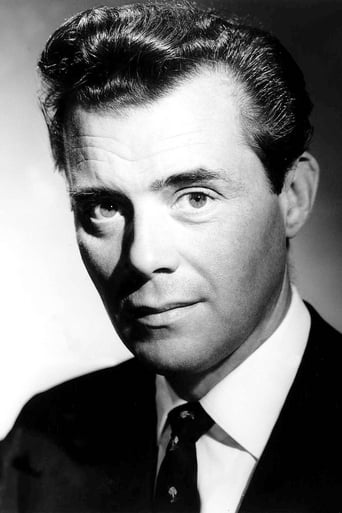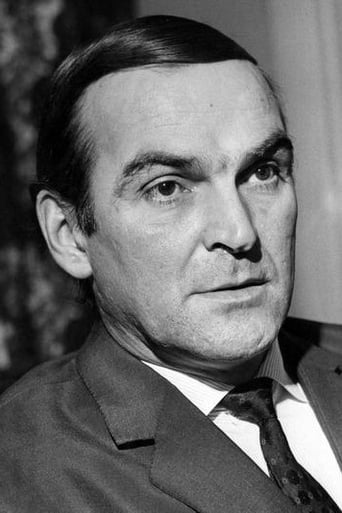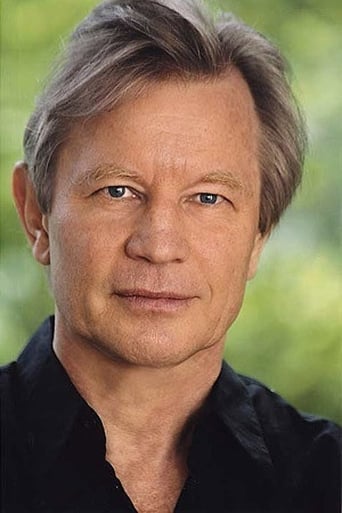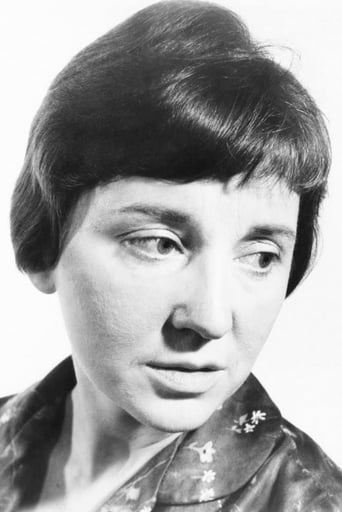Diagonaldi
Very well executed
Taraparain
Tells a fascinating and unsettling true story, and does so well, without pretending to have all the answers.
Dirtylogy
It's funny, it's tense, it features two great performances from two actors and the director expertly creates a web of odd tension where you actually don't know what is happening for the majority of the run time.
Mathilde the Guild
Although I seem to have had higher expectations than I thought, the movie is super entertaining.
christopher-underwood
Not as well known or as revered as the earlier Pinter, Losey collaboration, The Servant (1963) but equally fine. Harold Pinter's script is sparse and concise but its meaning clear and menacing. Indeed at times, such is the clarity of language and the depth of our understanding that we seem to know more clearly what is going on than those on the screen. It is some time since I last saw this and remembered little of the comings and goings but I remembered much of the dialogue and found myself, in the pauses, knowingly anticipating as one might have the next track on a vinyl LP. The script is perfection, Losey's direction very understanding and in complete harmony, Johnny Dankworth's music is effective but not over used and everyone performs well. Bogarde is as good as ever, the underrated Stanley Baker on top form and Jacqueline Sassard does very well in the difficult role, bouncing about between these competing males. Mostly shot in house, garden and college but there is a fine punting sequence and although on the surface not a lot seems to happen, it is surprising just how much does in this 'flashback' movie.
Leofwine_draca
ACCIDENT is a slow and staged conversation piece written by Harold Pinter. If you like highbrow intellectual discussion and the like then you might enjoy it although I found that it barely registered as a movie. The film features two fine actors, Dirk Bogarde and Stanley Baker, playing rival professors who just so happen to be sleeping with the same girl. Much is made of the opening car accident scene and the film strives hard to work up an air of mystery regarding the events surrounding it, but I found it all largely uninteresting and trivial. The characters are unlikeable across the board and the film's continuing attempts to be highbrow and artistic make it a real bore to sit through. When the subject matter is something as unimportant and uninteresting as affairs then it all feels very lacklustre.
Slime-3
Complex and slow moving, this highly rated film now seems very much of-it's-time although it was considered rather avant gard on release. The story, mostly told in flashback, moves with the speed of a work by Antonioni, exploring similar themes of moral decay, disaffection and dissatisfaction among a privileged group (jn this case Oxford academics.) Few of the characters are sympathetic and human weakness is laid bare on all fronts. At the heart of everything is Dirk Bogarde's Oxford Don, a dour man in the throws of a mid-life crisis. Seemingly wearying of his pregnant wife and jealous of his boorish colleague (Stanley Baker), the whole balance of a previously comfortable life is finally thrown right off balance by the arrival into his social circle of a young Italian woman, the exotic new girlfriend of an aristocratic student (Michael York). Jacqueline Sassard, as the object of the far reaching sexual obsession is a curious mix of beguiling beauty(those amazing eyes!) and very little personality while York is boyishly vacuous and we know his ultimate fate in the opening scene. Baker's character is perhaps the most unpleasant. He brags about his success as a resident expert on TV panel-shows and flaunts his sexual conquests and sporting prowess to an increasingly frustrated Bogarde who then goes in search of an old flame while attempting to secure a TV position of his own in order to keep pace on all fronts. Predictably the three male leads Bogarde, York and Baker) are instantly under Sassard's spell and jealousies which have so far largely rumbled along for many years, flare up, if rather slowly, and with a great many heavy silences and moments of extended tension. Screenwriter Harold Pinter's theatrical background does tend to show through in such sequences. One can easily envisage many of the scenes playing out on stage And while the acting is first rate there is sometimes an irritating element of theatricality about the whole thing. One long single-take involving the making of an omelet, which is clearly terribly significant, is a perfect example of how it often resembles a filmed- play. Beautifully filmed, it must be said, and directed with a firm hand at a very deliberate pace. But it does seem somewhat self-regarding and dated now. It's undoubtedly thought provoking, but exists in a world far removed from anything most of us will recognise and as such can be hard to relate to and a little tiresome to stay with. In the end the characters don't engender enough sympathy for us to care what transpires.
allenrogerj
People need to remember that the whole film is seen from Stephen's perspective; thus the other characters are not depicted as they "are" but as he perceives them at the time and many- perhaps even all- of the events may not happen except in his imagination (how likely, for example, is a crash that kills one person in a car and leaves the other without serious injury?)- or even someone else's imagination of his imagination. Indeed, there is a key scene where Charley begins to narrate the plot of a novel inspired by the people in the film and this is the film of that novel- are we in Charley's fantasy inspired by the friend who is the basis for Stephen or in Stephen's fantasy or is William taking Charley's advice and imaging a world?




